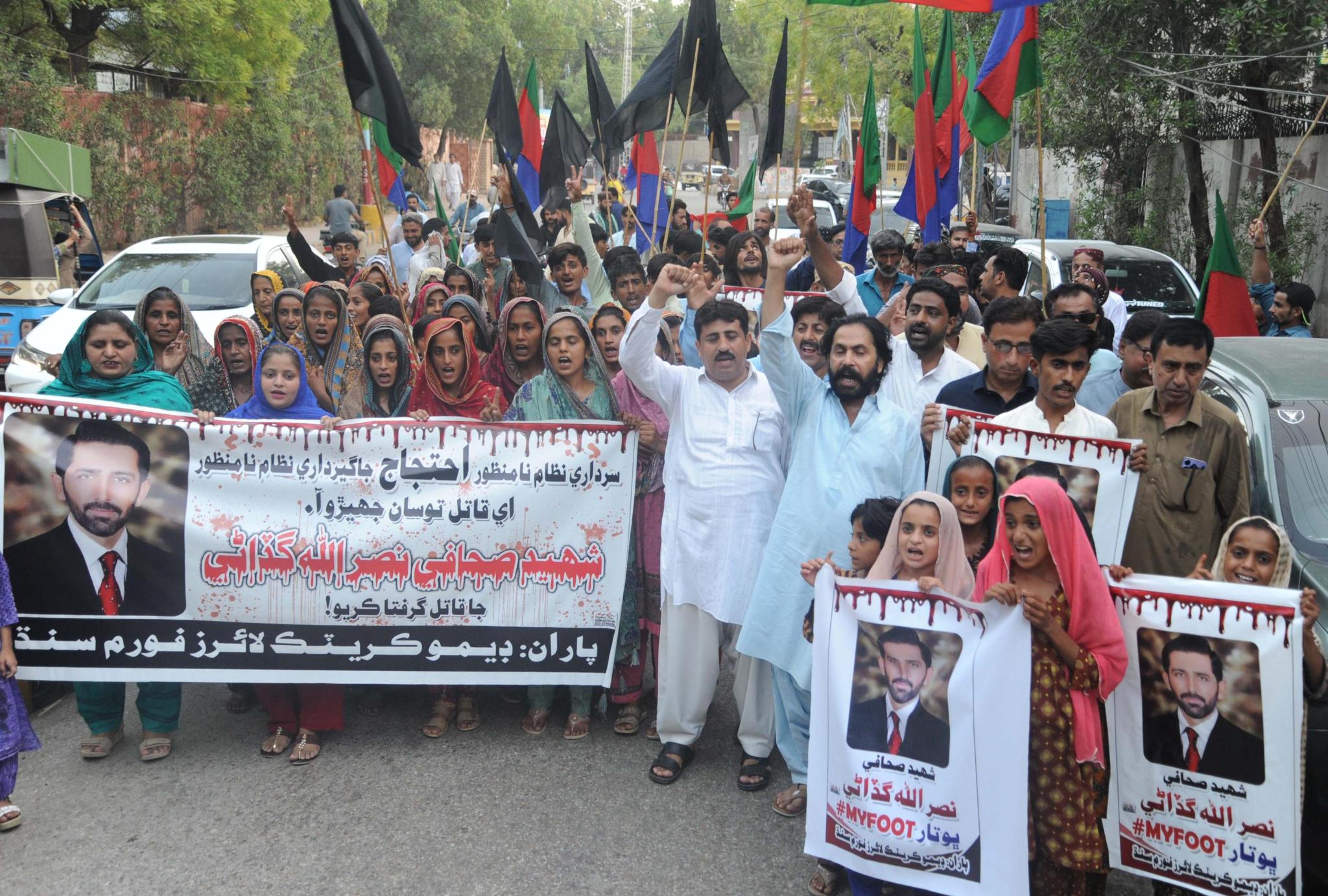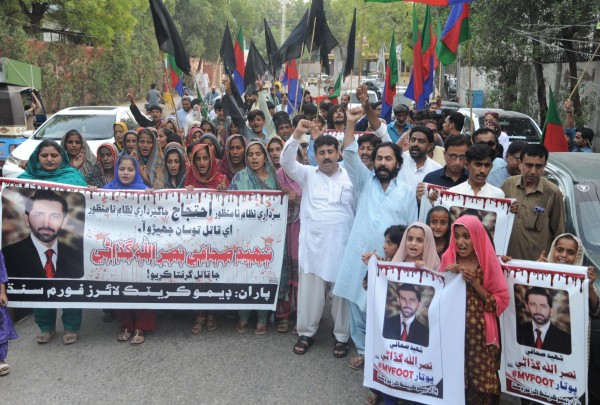The IPI global network is deeply alarmed by the deterioration of press freedom in Pakistan, marked by a recent wave of violence against the press along with the introduction of legislative and other measures that impose harsh restrictions on press freedom and online expression. We call on the government to take swift and concrete action to step up protections for journalists and to ensure a legal and regulatory environment that fosters freedom of the press and access to information, in line with international human rights standards and obligations.
Over the course of May, four Pakistani journalists were killed, with an additional four targeted in violent attacks. On May 3, Muhammad Siddique Mengal, president of the Khuzdar Press Club and reporter for The Daily Baakhbar Quetta, was killed by a bomb attack while driving through a busy intersection in Khuzdar City, Balochistan. Two others were killed in the blast, and six were injured. Mengal had received death threats leading up to the attack, and survived an attempt on his life in August 2023. A First Information Report (FIR) – a written document by the police that begins criminal proceedings in Pakistan – was filed, but no arrests have been made.
On May 15, Ashfaq Ahmed Sial of Daily Khabrain was shot dead by two motorcyclists on his way to work in the Punjab province. The motive for the attack is unclear.
On May 21, journalist Kamran Dawar was shot dead in front of his house in North Waziristan. Dawar regularly criticized the Pakistani military on his social media accounts under the name Waziristan TV, and he had received death threats prior to his killing. An FIR was registered by his uncle, but no arrests have been made.
The same day, in the Ghotki district of the Sindh province, Nasrullah Gadani of Awami Awaz was shot by unidentified motorcyclists. He was taken to the hospital in critical condition, where he died three days later. Media and rights groups across Sindh staged walkouts and marches to protest the killing, as well as the ongoing impunity for the August 2023 killing of journalist Jan Mohammad Mahar, a case which is now 10 months old. About a week passed before authorities filed an FIR for the killing, and they faced significant pressures to dissolve the original investigation team due to accusations of bias. On June 10, Ghotki announced that they had made a major breakthrough in the case and arrested three suspects.
On May 22, a mob attacked Syed Iqrar ul Hassan in Gujranwala, throwing acid on his car and beating Hassan and his team. The group was chanting slogans in support of local spiritual leader Pir Haq Khateeb Sarkar, whom Hassan had exposed as a fake on his show multiple times. An FIR was filed, but no arrests have been made.
On May 29, Haider Mastoi of Sindh News was shot five times by masked motorcyclists; Khan Muhammad Pitafi, a cameraman who accompanied him, was beaten. The motive for the attack is unclear, and statements diverge on whether it was an armed robbery or a targeted assault.
On May 30, Chaudhry Ikhlaq of Daily Express was shot at by two gunmen, sustaining a shoulder injury but surviving. It is still unclear whether Ikhlaq was attacked because of his journalism, but he reports that he had received death threats leading up to the attack.
Pakistan has a concerning track record of failing to punish the killers of journalists; the country ranked 11th on CPJ’s 2023 Global impunity index. A study by Freedom Network in 2022 found that there were “no convictions in 96% of journalist killings” between 2012 and 2022 in Pakistan. Despite passing the “Protection of Journalists and Media Professionals Act” in 2021, the country has continued to see high-profile cases of impunity.
Pressure from multiple fronts
Journalists in Pakistan also face increasing censorship due to the introduction of new measures that curtail expression online and restrict the ability for journalists to report on matters of public concern.
“Journalists in Pakistan are working within a shrinking space for free expression”, Sana Ali, director of Pakistan Press Foundation, told IPI. “Amid the continuation of physical attacks on journalists and media professionals, legislation, including the passage of the Punjab Defamation Bill, 2024, without stakeholder consultation, and proposed regulatory measures such as the creation of the Digital Rights Protection Authority by amending PECA, 2016 are reflective of this push to regulate digital spaces”.
Broadcasters are also facing increasing difficulties disseminating information. Ali added that “the pressure of broadcast media has persisted with the latest PEMRA [Pakistan Electronic Media Regulatory Authority] directive banning coverage of ongoing court proceedings till written orders are issued by the court”.
The PEMRA directive, beyond obstructing access, also obstructs justice for journalists who find themselves targeted by authorities. On May 15, Kashmiri journalist and poet Syed Farhad Ali Shah was abducted from his home by four men, only to be found two weeks later in the custody of police. His court hearing, for “‘misconduct and abusive language’ towards police officers and obstructing their duties”, was censored by the directive.
Journalists unions have made some progress fighting against such measures, turning to the courts. Thanks to petitions filed by the Islamabad High Court Journalists Association, the Press Association of Supreme Court, and the Pakistan Federal Union of Journalists, on June 11, the PEMRA directive was ruled against by the Islamabad High Court. The Punjab Defamation Bill, 2024, has also experienced a “chorus of disapproval”, although has yet to be struck down.
Reports are also beginning to surface of a nationwide implementation of a firewall across Internet Service Providers (ISPs) granting authorities the power to filter out dissenting content. Access to X (formerly Twitter) has been blocked within the country for several months.
“We are gravely concerned by the continuing deterioration of press freedom in Pakistan. IPI has in the past called on the government to respect the rights of journalists and step up protections to ensure their safety – and we urgently renew these same calls today,” Amy Brouillette, Director of IPI, said. “Journalists in Pakistan have the right to work freely and independently and without fear of physical or legal harassment. The government must respect these rights.”



